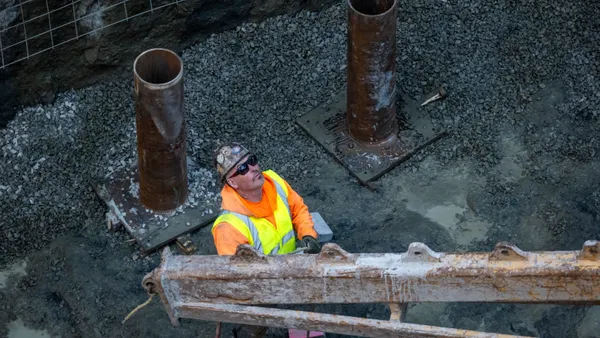Dive Brief:
- The Commerce Department said Monday that it would impose preliminary antidumping duties of between 4.59% and 7.72% on some Canadian softwood lumber imports, The Hill reported.
- The move follows one in April to apply an average 20% tax on those imports in response to countervailing claims. Combined, the two duties add between 17.41% and 30.88% to the current cost of Canadian softwood lumber imports.
- Three Canadian provinces — Newfoundland and Labrador, Nova Scotia and Prince Edward Island — are excluded from the antidumping and countervailing investigations, according to Reuters, though not until the decision is confirmed.
Dive Insight:
The decades-long dispute continues between the U.S. and Canada over whether the former government subsidizes its producers, allowing them to sell their product in the U.S. at below-market rates. Reuters notes that this is the countries’ fifth lumber-related dispute in 40 years.
The last legal agreement between the two countries expired in October 2015. Before it elapsed, that deal had removed antidumping and countervailing duties from Canadian softwood lumber imports and required U.S. producers to give back some of the revenue collected previously. In return, Canadian producers agreed to certain limits when selling into the U.S.
A one-year ban on legal action followed the expiration of that deal. During that time, the U.S. and Canadian governments, along with producers in both countries, intended to come up with a new deal. That didn't happen. Instead, U.S. producers have continued to raise longstanding claims of countervailing and antidumping by their Canadian competitors.
According to The Hill, Canada exports roughly 80% of its softwood lumber to the U.S., and that makes up approximately one-third of the U.S. softwood lumber market. The U.S. has faced resistance around its desire to reduce Canadian producers’ market share, though both countries are reportedly looking elsewhere to buy and to sell their product.
Canadian producers have pushed back on the latest countervailing and antidumping duties, threatening the possibility of litigation, according to CBC.
Both sets of duties are preliminary, and a final decision is expected later this summer. Final rates have tended to be lower than preliminary rates.













